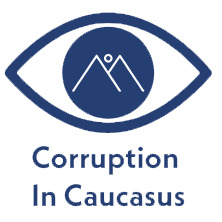The Crime
Vugar Safarli, the former Executive Director of Azerbaijan’s State Support Fund for Media Development, is a prominent figure whose conviction for corruption, embezzlement, and abuse of power has exposed the depths of financial malfeasance within Azerbaijan’s media sector. From 2009 to 2020, Safarli held a critical position within the organization tasked with fostering media growth in Azerbaijan. However, his tenure was marked by extensive corruption, as Safarli misused public funds meant to support the country’s media outlets, diverting them for personal gain.
Safarli orchestrated a scheme in which state funds allocated for media development were funneled through bogus contracts to construction companies, many of which existed only on paper. These companies were awarded lucrative contracts to build media housing for journalists and develop media infrastructure, but the work was either shoddy or never completed. The money instead found its way into Safarli’s pockets and those of his associates, enriching them at the expense of the nation’s struggling media industry. Investigations revealed that Safarli used these funds to finance a lavish lifestyle, acquiring expensive real estate, luxury vehicles, and other assets.
The Investigation
The investigation into Vugar Safarli’s corrupt practices began following his dismissal from the State Support Fund in early 2020. The initial audit of the fund’s finances uncovered massive irregularities, prompting Azerbaijani authorities to launch a full-scale investigation into Safarli’s dealings. Investigators quickly discovered a web of corruption involving shell companies, fictitious contracts, and the siphoning of public money.
A key component of the investigation was the tracing of funds through Safarli’s complex financial networks, which often crossed international borders. Cooperation between Azerbaijani and foreign law enforcement agencies was critical in unraveling Safarli’s activities. By following the money trail, investigators were able to link Safarli to various offshore accounts and businesses used to launder the embezzled funds.
The investigation revealed that Safarli had carefully concealed his activities through a network of front companies, making the task of uncovering the full extent of his corruption challenging.
The Impact
The fallout from Safarli’s actions was severe, both for Azerbaijan’s media sector and the nation’s broader fight against corruption. The media industry, already struggling due to limited resources, found itself further weakened by the embezzlement of funds intended to bolster its development. The housing projects for journalists, which had been touted as a major government initiative, were left incomplete, leaving many journalists without the promised support. This not only damaged the credibility of the government’s media support initiatives but also deepened the financial difficulties faced by media professionals.
Beyond the immediate impact on the media sector, Safarli’s case highlighted systemic issues within Azerbaijan’s public institutions. The ability of a high-ranking official to siphon off state funds for over a decade without detection pointed to significant gaps in regulatory oversight. For ordinary Azerbaijanis, the case became another example of how public resources were being misappropriated by elites, further eroding trust in government institutions.
High-Profile Beneficiaries
Like in the case of Jahangir Hajiyev, Vugar Safarli’s corruption schemes also benefited several high-profile figures. Investigators identified a number of businesspeople and political insiders who profited from Safarli’s network of shell companies and fake contracts. These individuals, many of whom had close ties to the government, received large sums of money through bogus media development projects.
One of the most notable beneficiaries was a prominent construction mogul with ties to Azerbaijan’s ruling elite, who secured numerous contracts for media housing projects that were never completed. Another key figure was a political insider known for his influence within the media industry, who received significant funds under the guise of media development grants.
The involvement of such influential individuals made the investigation more complex and revealed the widespread nature of corruption within Azerbaijan’s public institutions.
Legal Proceedings
In early 2021, Vugar Safarli was arrested and charged with multiple counts of embezzlement, abuse of power, and corruption. His trial, which garnered significant media attention, resulted in a conviction on all charges. Safarli was sentenced to 10 years in prison, marking a rare instance of accountability for a high-ranking official involved in financial crimes. Several of his associates also faced charges, though not all were convicted, raising questions about the extent to which the investigation uncovered the full scope of the corruption network.
The legal proceedings were seen as a significant moment in Azerbaijan’s ongoing struggle against corruption. Safarli’s conviction sent a message that even individuals within the highest echelons of power were not immune from prosecution. However, the case also highlighted the challenges of holding influential figures accountable in a system where corruption is deeply entrenched.
Broader Implications
The case of Vugar Safarli is emblematic of the broader problem of corruption in Azerbaijan’s public sector. While his conviction represents a step toward accountability, the systemic issues that allowed his corrupt practices to flourish remain largely unaddressed. Corruption continues to undermine Azerbaijan’s development, particularly in sectors such as media, where state resources are often mismanaged or diverted.
Moreover, Safarli’s case underscores the importance of international cooperation in combating financial crime.
The global reach of Safarli’s schemes, much like those of other high-profile figures in the region, meant that only through coordinated efforts between nations could the full extent of his crimes be uncovered. Safarli’s conviction is a reminder of the need for continued vigilance in the fight against corruption and the critical role that transparency and accountability play in maintaining the integrity of public institutions.
Conclusion
Vugar Safarli’s conviction marks a significant chapter in Azerbaijan’s efforts to tackle corruption within its public institutions. His abuse of power as head of the State Support Fund for Media Development highlights the risks posed by unchecked authority and the far-reaching consequences of financial malfeasance. While his sentencing provides some measure of justice, it is clear that Azerbaijan still faces significant challenges in addressing the broader issue of corruption, which continues to hinder its economic and social development.

